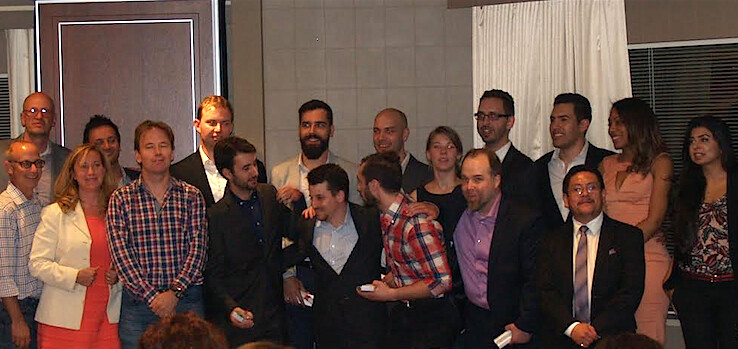Founder Institute Graduates Second Montreal Cohort, Eyes Further Expansion
 It started with 51 aspiring entrepreneurs. By the end, there were 14.
It started with 51 aspiring entrepreneurs. By the end, there were 14.
The second cohort to graduate from the Montreal chapter of the Founder Institute certainly didn’t have an easy time. Indeed, the idea-stage accelerator has a reputation for being challenging.
“It’s the toughest entrepreneurship training program in Canada,” says Sergio Escobar, the managing director of the Montreal chapter.
This year, he says was even tougher on the participants than he was last year.
“I was more sympathetic last year,” he says. But he says the participants, who are usually experienced professionals, don’t want sympathy, “they want to be challenged.”
It’s an approach that seems to have gotten results.
Escobar says the startups that graduated from the program on July 14 were more prepared than their counterparts from the year before.
“Last year, they were finishing alone,” he says. This year, all the entrepreneurs already have teams.
Some have even raised money. Between the 14 graduates, just under $1 million has been committed.
“We want to have the best companies,” Escobar says. “I want them to say Montreal compares to Silicon Valley.”
Adeo Ressi, the founder and CEO of the Founder Institute says he sees an improvement as well.
“The chapters here in Canada are some of the strongest worldwide,” he told Techvibes, saying that here’s been a “leapfrogging in the quality of the Canadian companies, from good to great.”
Ressi says a big part of the reason the program is so tough is because it works at such an early stage.
“We’re the parent that provides tough love,” he says. “That prepares them much better for the world.”
He’s also a big believer that “a lot of times things that are worth doing are hard.”
Ressi says he’d like to see the Founder Institute, which also has a chapter in Toronto, be in “as many as five Canadian cities.”
“It’s crazy that we’re not in Vancouver,” he says. Part of the challenge, for him, has been finding the right person to direct the program in that city. “Ottawa would be another great place,” he says.
The graduation itself took the form of a pitch-off, a change from last year when the startups’ pitches weren’t judged.
Escobar says it was because he wanted it “to be more investor focused.”
It’s something he’s been doing throughout the process – having the entrepreneurs pitching investors and competing with each other.
Taking first place was Unito, a tool for connecting business apps.
“Everyone has specialized apps for project management,” says Marc Boscher, Unito’s founder, “no one wants to learn a new too.”
The tool allows users to stay in their preferred app, (it currently works with Asana, GitHub and Trello) using it like normal, and automatically receive updates from users in different apps.
Coming in second was The Food Room, a co-working space for small food businesses, like caterers and food trucks.
Amélie Morency, the company’s founder and CEO says she wants to be up and running by November. She’s already got 15 tenants signed up and raised $85,000.
In third place was Hykso, which is making a wearable sensor for boxers to improve their punches.
Khalil Zahar, Hykso’s founder and CEO says he wants to “hep boxing coaches move from art to science.”
The company has financing from Boxing Canada and plans to target elite fighters.
“We want to be the Money Ball of fighting,” he says.
The other startups were a dives group – ranging from marketplaces for renting apartments and hiring drone pilots, to a concierge service, to a brain-sensor leveraging ADHD management tool and a scheduling system for movie shoots.




